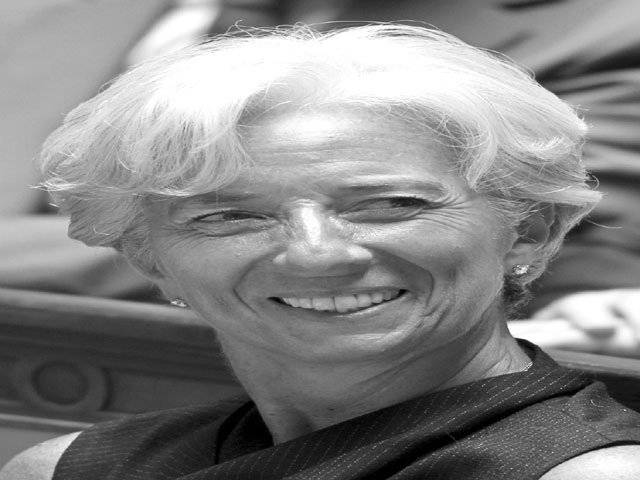SPECIAL CORRESPONDENT WASHINGTON - The International Monetary Fund executive board Tuesday officially named Christine Lagarde as the next IMF director, after the French finance minister won late support from the US and several major emerging-market nations. US backing gave Ms. Lagarde enough votes to defeat her only rival, Mexican central bank Governor Agustin Carstens, at a meeting of the IMFs board Tuesday in Washington. Third world experts saw the move as a set back to the efforts of developing countries for reforming the financial institution and having a greater say in global economic issues. The decision hands the managing director's role to a minister playing a critical role in negotiating financing for Europe's sovereign-debt bailouts, a crisis that threatens to rupture a fragile global recovery. Lagarde will also enter arguably one of the world's most powerful financial positions as economists warn that sluggish restructuring of the financial system risks creating future banking perils and unbalanced growth in the global economy is resurrecting protectionist policies. She will be the first woman in the role, but the 11th consecutive European. The appointment ends a five-week selection process to replace Dominique Strauss-Kahn, who resigned last month after being indicted on sexual assault charges. Many fund-watchers said Lagarde's succession was a foregone conclusion given Europe's early backing of Lagarde-even before the IMF officially started searching-and the unwritten agreement between the US and Europe on appointment of top positions at the IMF and World Bank. The US ensured the IMF preserves a seven-decade convention of a European heading the world's last-chance bank by publicly backing Lagarde just hours before the board's meeting. US Treasury Secretary Timothy Geithner said Lagarde's "exceptional talent and broad experience will provide invaluable leadership for this indispensable institution at a critical time for the global economy." Washington's support of Lagarde on the back of endorsements from Europe, China, Brazil and Russia gave her the clear majority from the 24 countries sitting on the board.
Saturday, April 20, 2024
Lagarde first woman IMF chief

8:27 AM | April 19, 2024
8:09 AM | April 19, 2024
Pak economy improving, funds will be provided on request: IMF
9:57 PM | April 19, 2024
Minister advocates for IT growth with public-private collaboration
9:57 PM | April 19, 2024
Judges' letter: IHC seeks suggestions from all judges
9:55 PM | April 19, 2024
Formula 1 returns to China for Round 5
9:05 PM | April 19, 2024
Germany head coach Julian Nagelsmann extends contract till 2026 World Cup
9:00 PM | April 19, 2024
A Tense Neighbourhood
April 19, 2024
Dubai Underwater
April 19, 2024
X Debate Continues
April 19, 2024
Hepatitis Challenge
April 18, 2024
IMF Predictions
April 18, 2024
Kite tragedy
April 19, 2024
Discipline dilemma
April 19, 2024
Urgent plea
April 19, 2024
Justice denied
April 18, 2024
AI dilemmas unveiled
April 18, 2024
ePaper - Nawaiwaqt
Advertisement
Nawaiwaqt Group | Copyright © 2024





